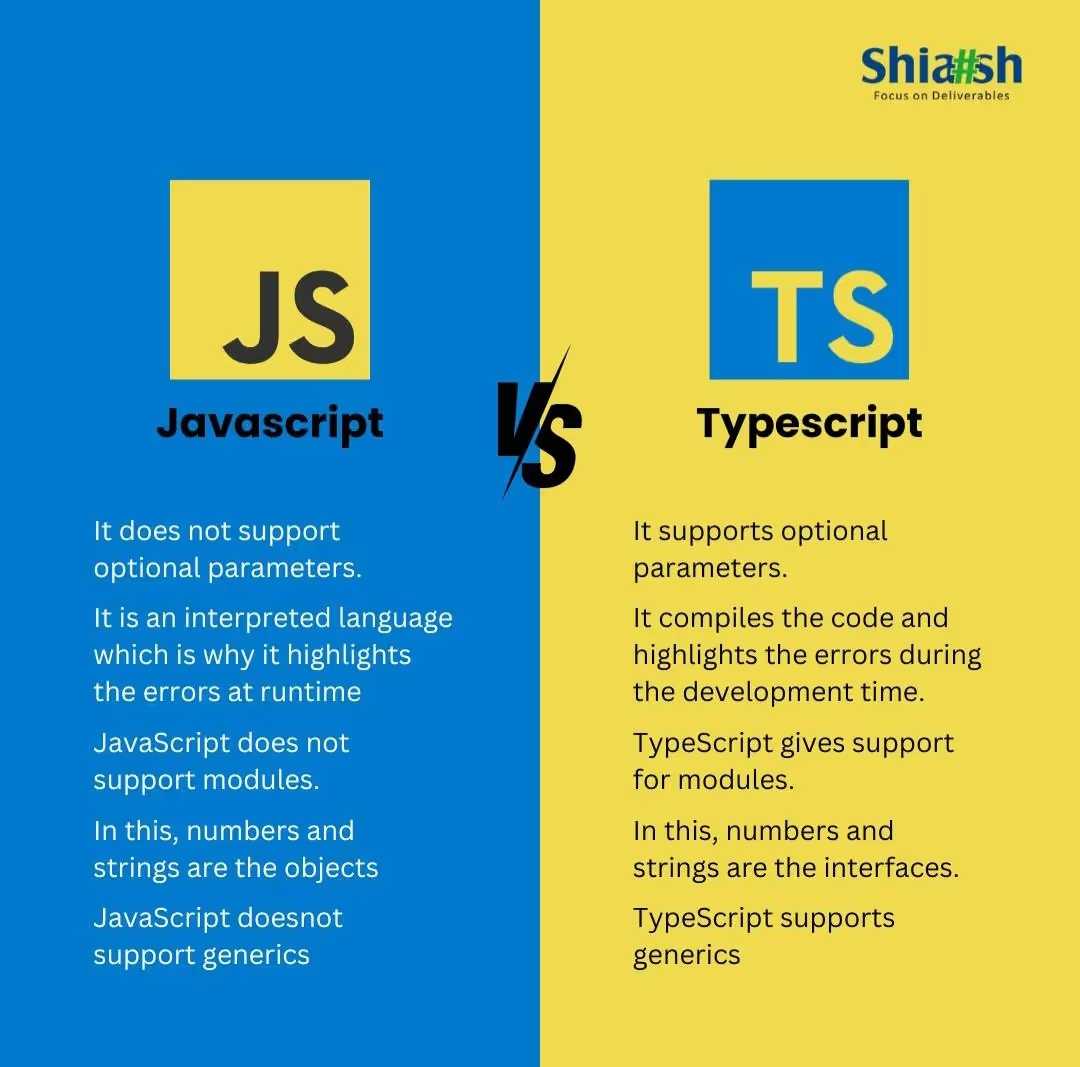As projects grow bigger, managing JavaScript code becomes harder. Developers often face problems like fixing hidden bugs, keeping the code clean, and making sure new features don’t break existing ones. TypeScript is here to solve these issues. It’s a programming language built on top of JavaScript and adds extra tools like static typing. These features help developers organize their code, find mistakes early, and work more efficiently. For large-scale projects with many team members, TypeScript makes things much easier to handle. In this blog post, we will be discussing what TypeScript really is and how beneficial it is when dealing with Javascript software development.
TypeScript is a programming language that builds on JavaScript by adding extra features to make coding easier, safer, and more reliable, especially for big projects. At its core, TypeScript is like a smarter version of JavaScript because it includes something called "static typing." This means you can define exactly what type of data a variable should hold, like numbers, strings, or objects, and the TypeScript compiler checks your code for errors before you even run it. TypeScript is not a replacement for JavaScript; instead, it works with JavaScript. Every TypeScript file you write is eventually converted, or "compiled," into plain JavaScript, which is the language that browsers and many servers understand. This makes TypeScript compatible with all JavaScript tools, libraries, and frameworks. It’s particularly helpful because it introduces structure and clear rules to JavaScript code without taking away the flexibility developers love. So, you can think of TypeScript as a helpful assistant that ensures your JavaScript code is clean, organized, and free from common mistakes, making it an excellent choice for large or complex projects.

TypeScript’s biggest advantage is its ability to catch errors before the code runs. Unlike JavaScript, where a variable can store any type of data, TypeScript forces developers to declare exactly what type of data (like numbers, strings, or objects) a variable should hold.
Static typing makes the code safer, cleaner, and much easier to work with in big projects.
Large-scale projects often have thousands of lines of code written by different people. TypeScript helps make this code easier to understand and manage by using clear type definitions and annotations.
By making the code clear and consistent, TypeScript reduces the effort needed to maintain and expand a large application.
As mentioned earlier, one great thing about TypeScript is that it works perfectly with JavaScript. If you already have a big JavaScript project, you don’t have to rewrite everything to use TypeScript. You can add it step by step.
This flexibility makes TypeScript an excellent choice for both new and existing projects.
TypeScript works seamlessly with modern code editors and development tools, making the coding process faster and more efficient.
With TypeScript, your tools become smarter, helping you write better code faster.
In big projects with many developers, keeping the code consistent can be a challenge. TypeScript helps teams stay on the same page by enforcing rules and creating a shared structure for the project.
TypeScript makes collaboration smoother and ensures that everyone is working in harmony.
TypeScript includes features that make coding more efficient and reduce repetitive tasks.
These tools are especially useful in large projects where efficiency and precision are critical.
TypeScript makes it easier to maintain and update your application over time, which is essential for large-scale projects.
These benefits ensure that your project remains stable and easy to work on, even years after it’s created.
While TypeScript doesn’t run directly in production, it helps create cleaner and more efficient JavaScript code during the build process.
This leads to a better user experience and makes your application more reliable.
Blue Coding is a nearshore outsourcing agency that specializes in high-end software solutions such as staff augmentation, custom development and tech consultation. Our team consists of a large number of developers who are skilled in various programming languages, frameworks, and technical skills. Our team prioritizes the clients satisfaction with the final result and keeps them up-to-date with the full progress of every milestone. To learn more about how we can help you, contact us now and book your free strategy call!
Subscribe to our blog and get the latest articles, insights, and industry updates delivered straight to your inbox